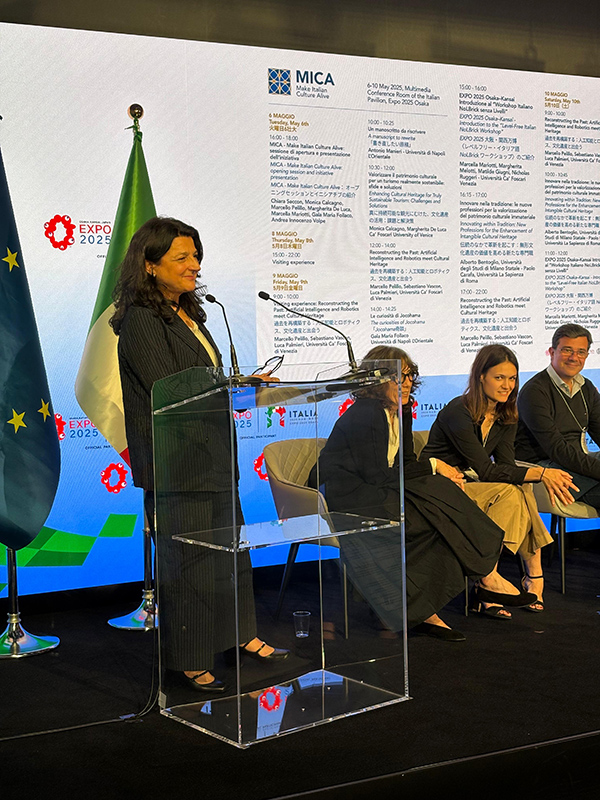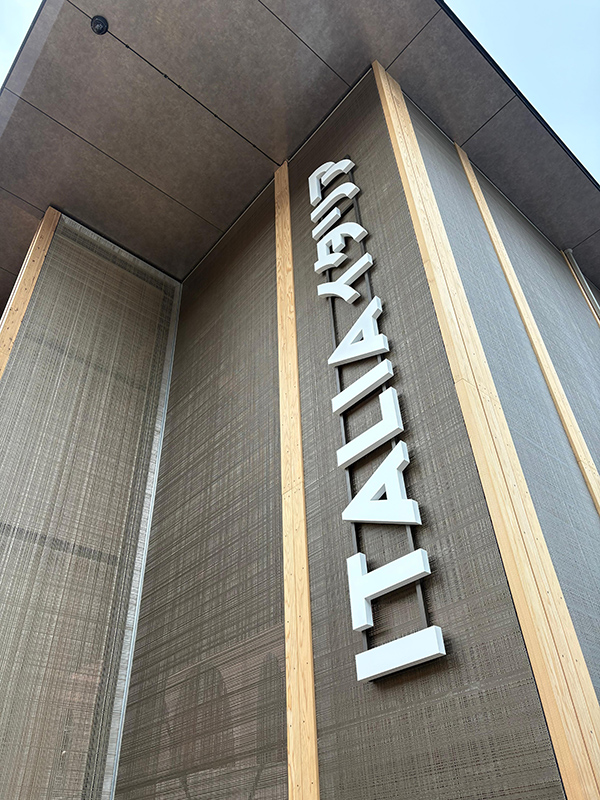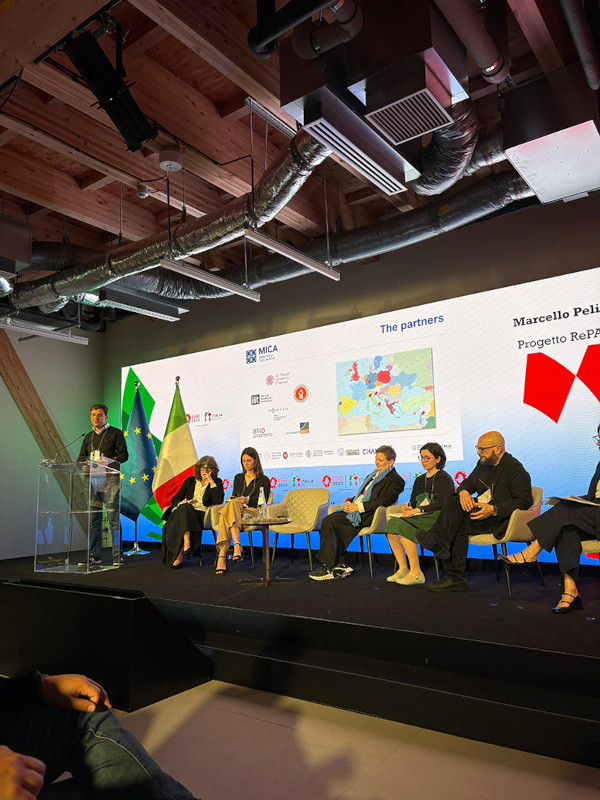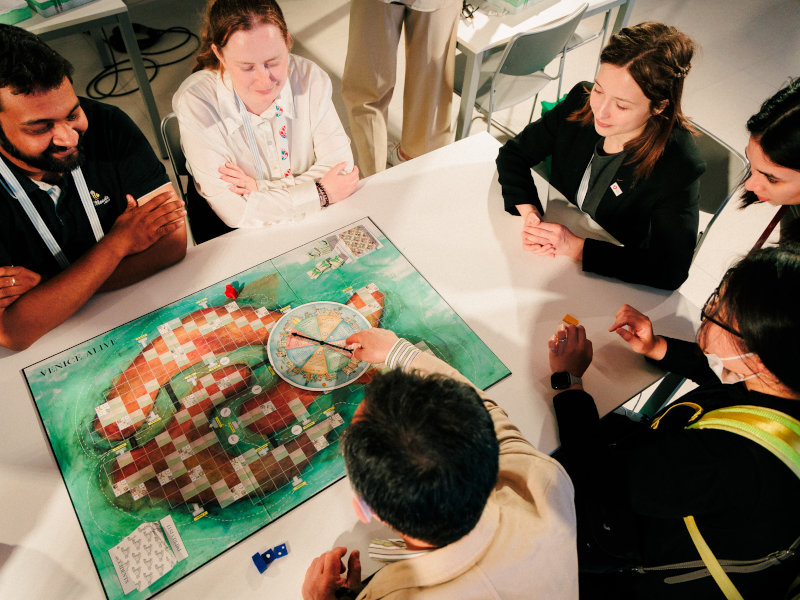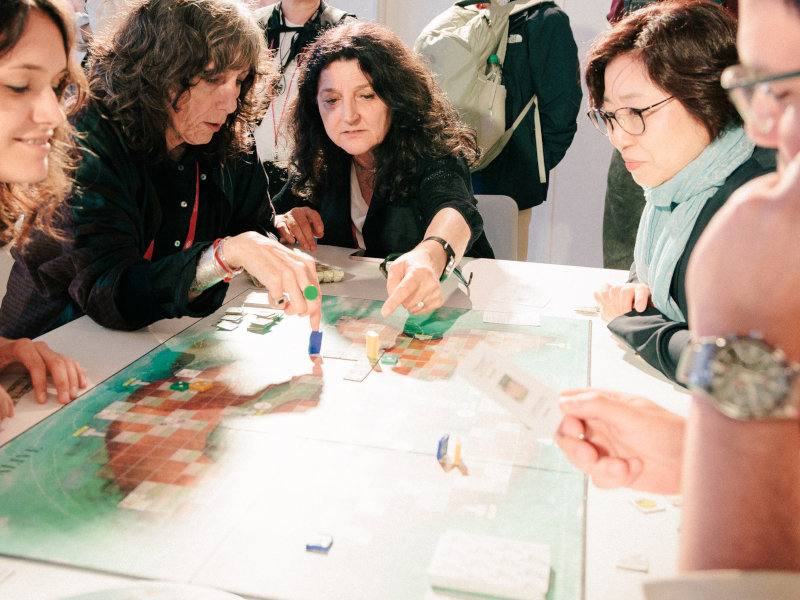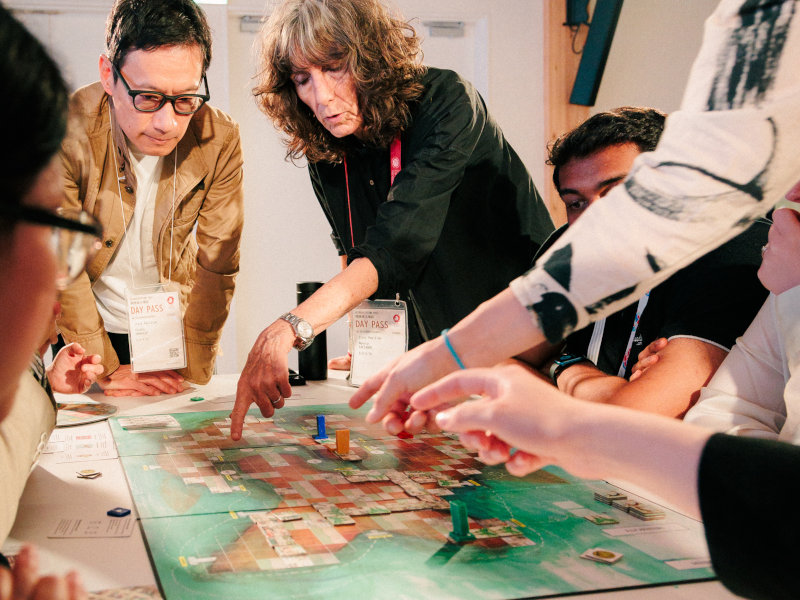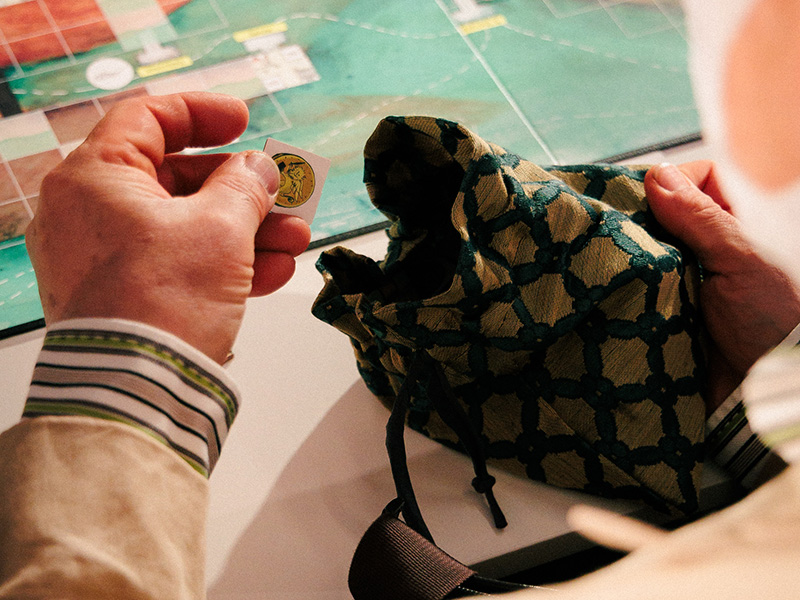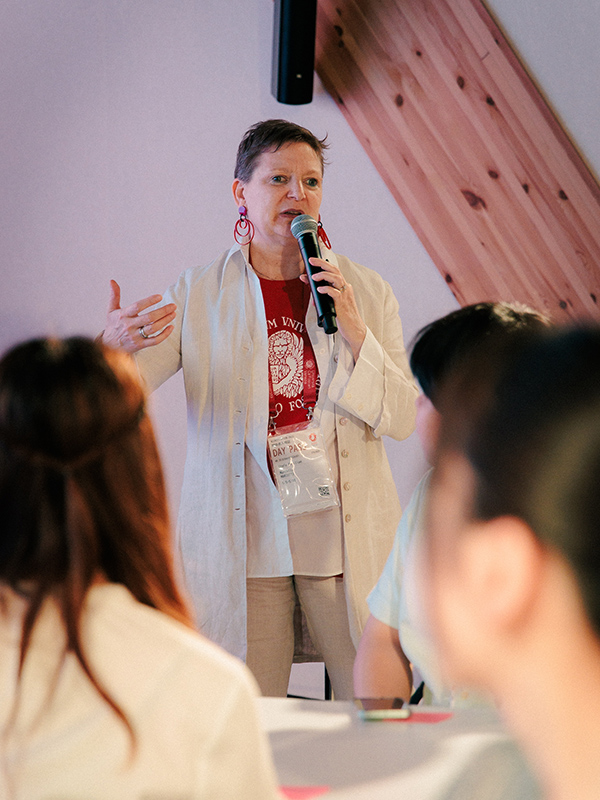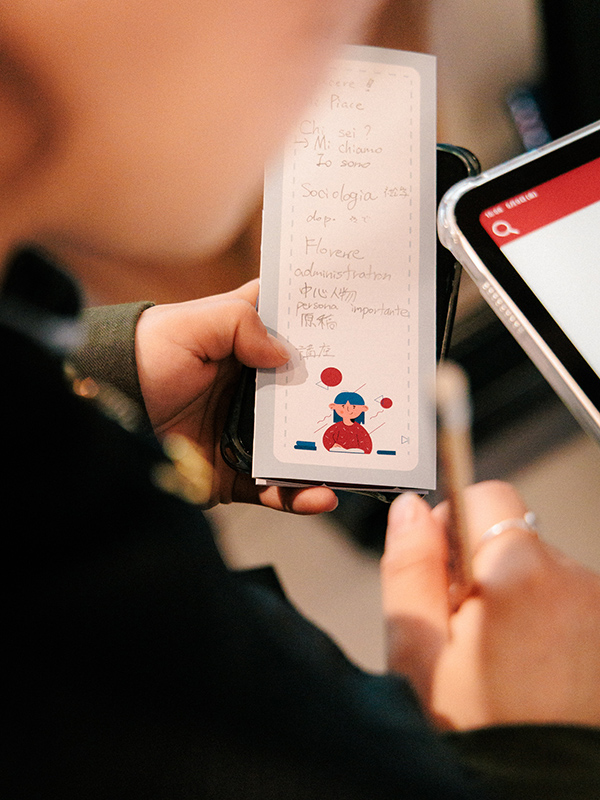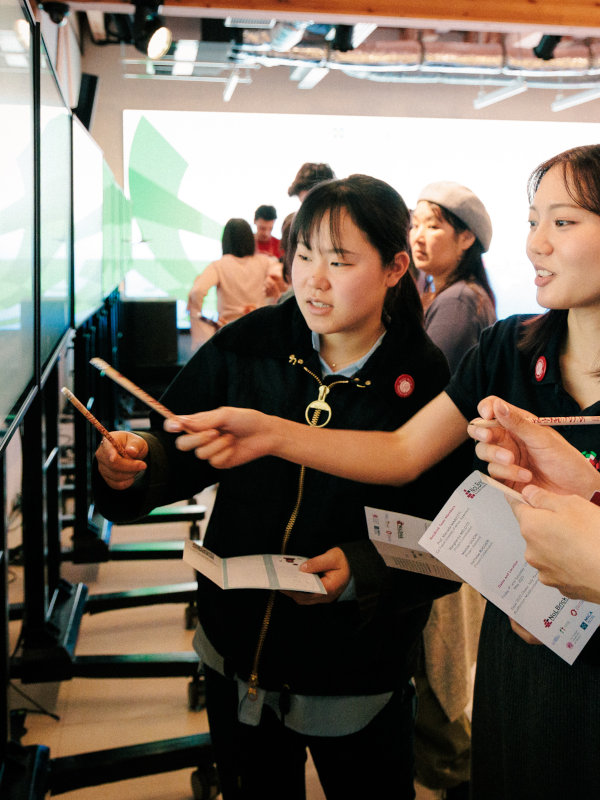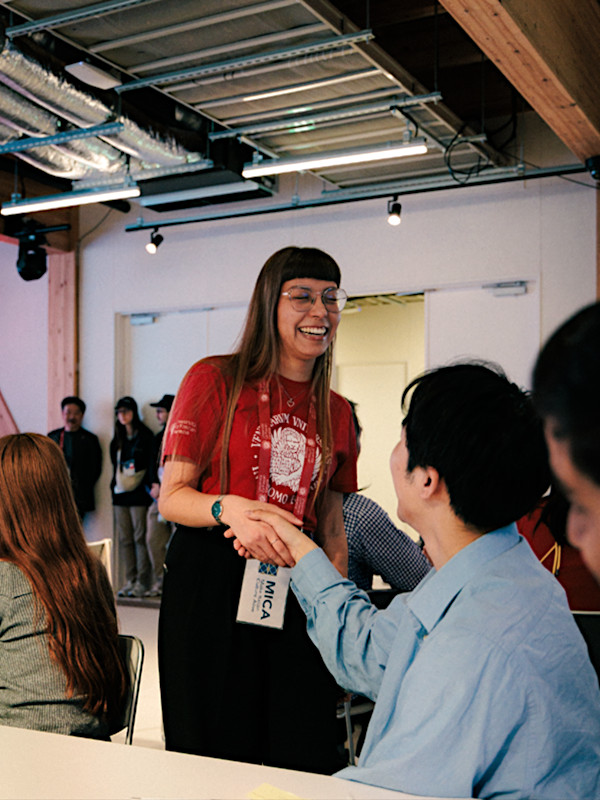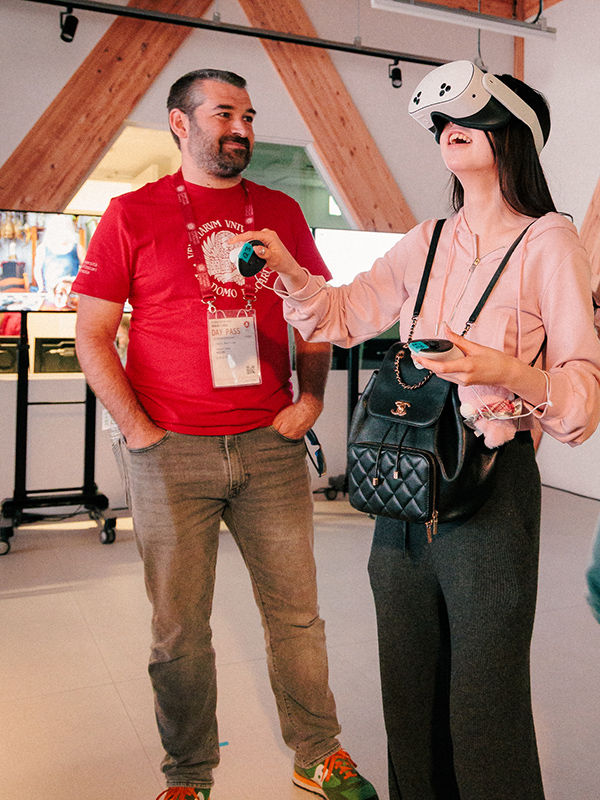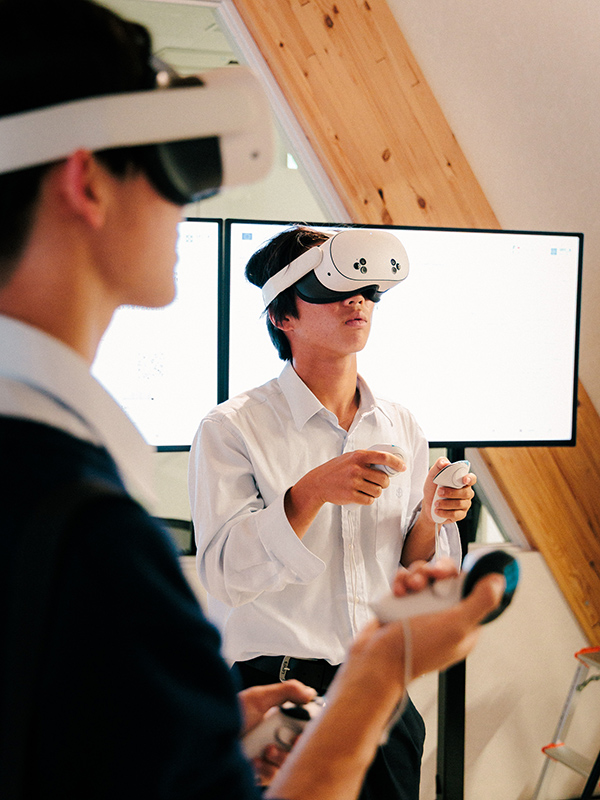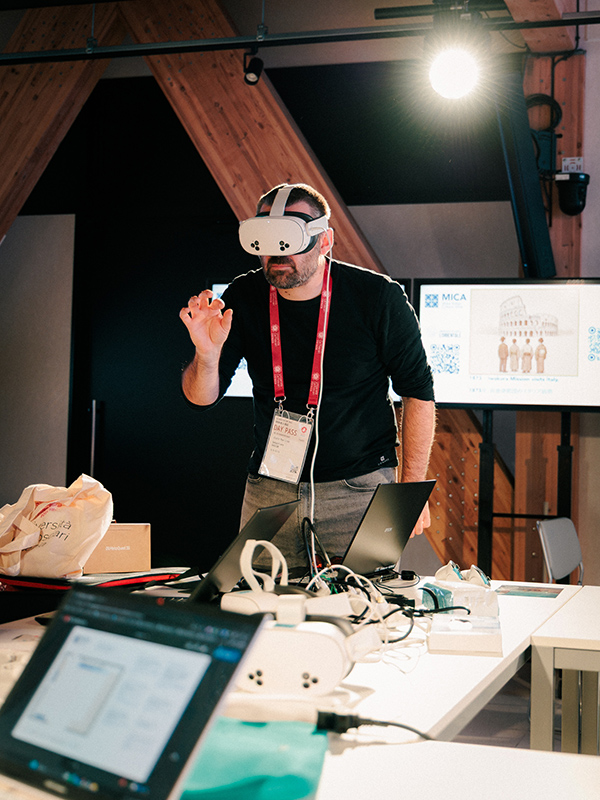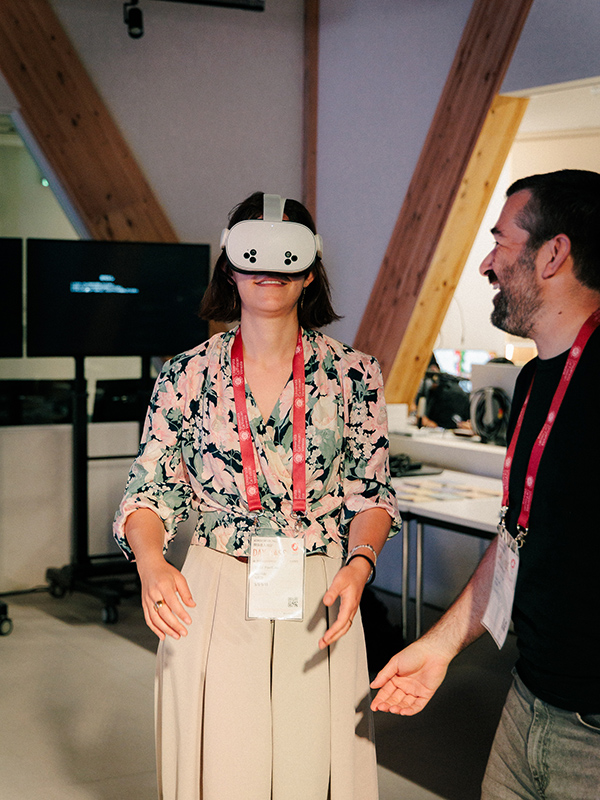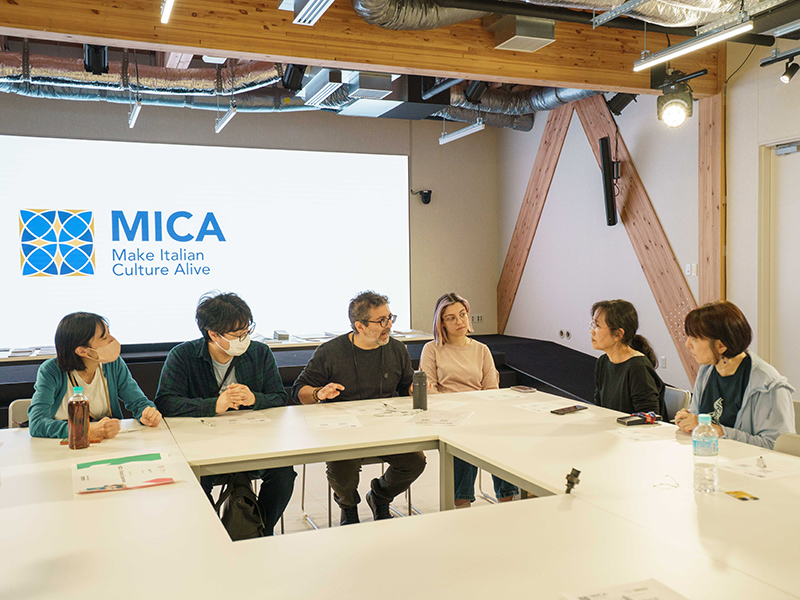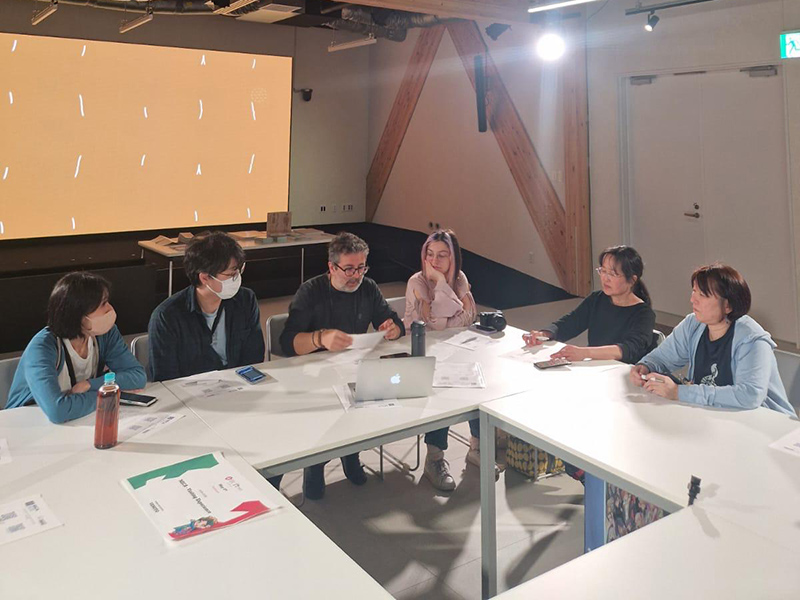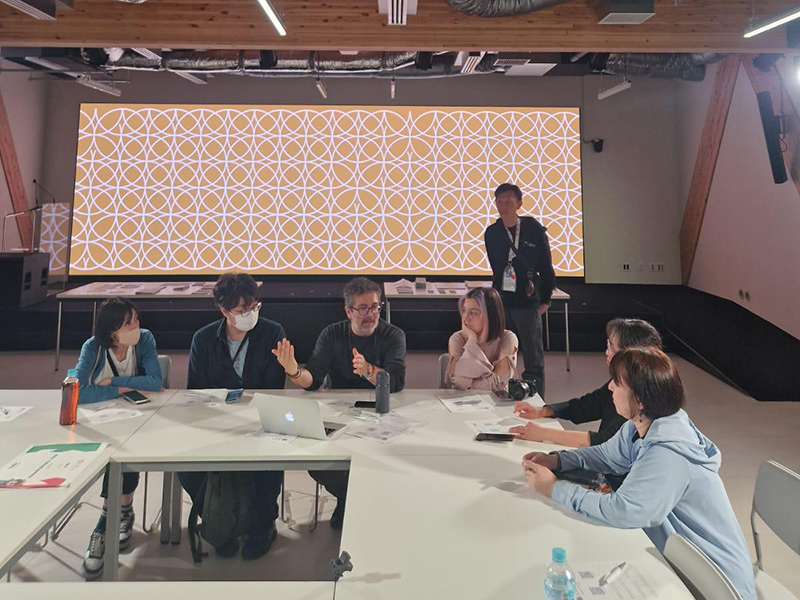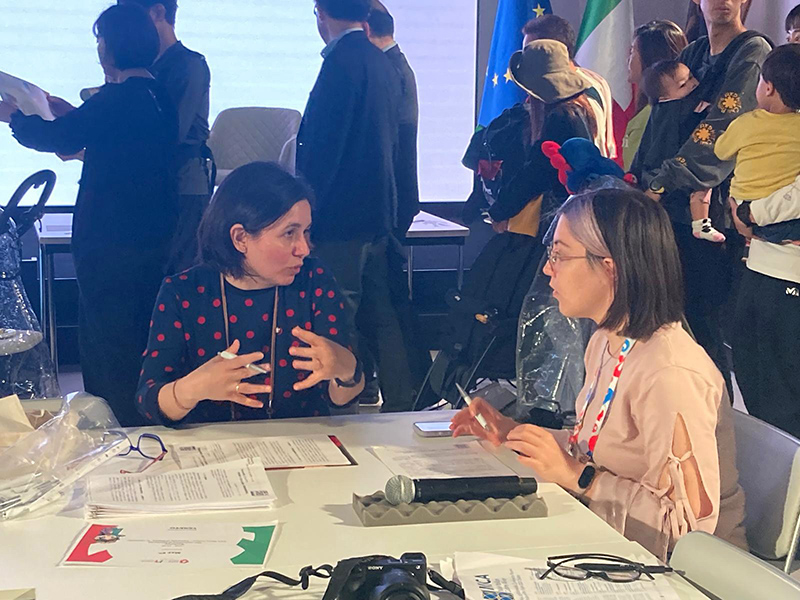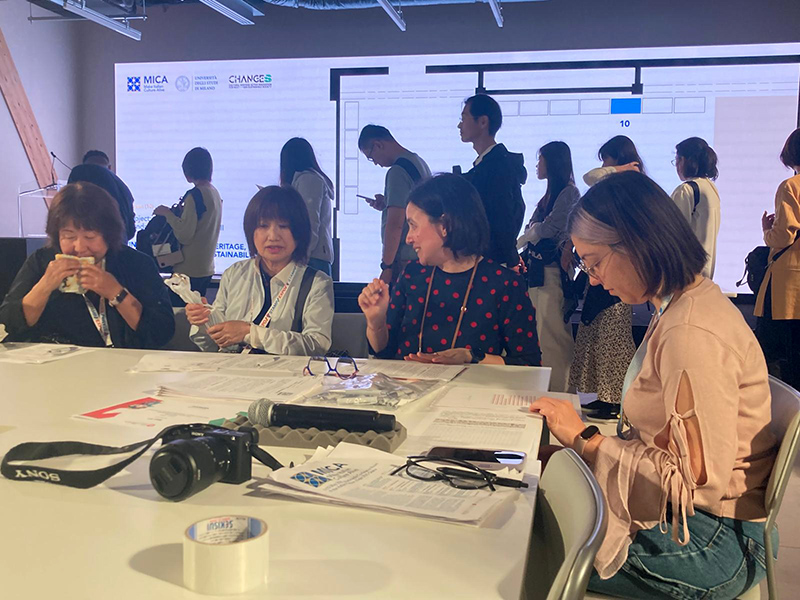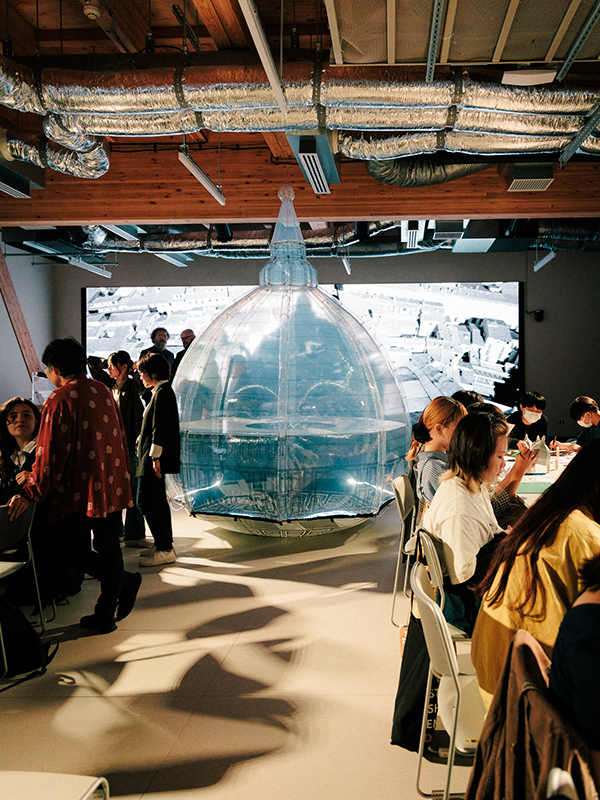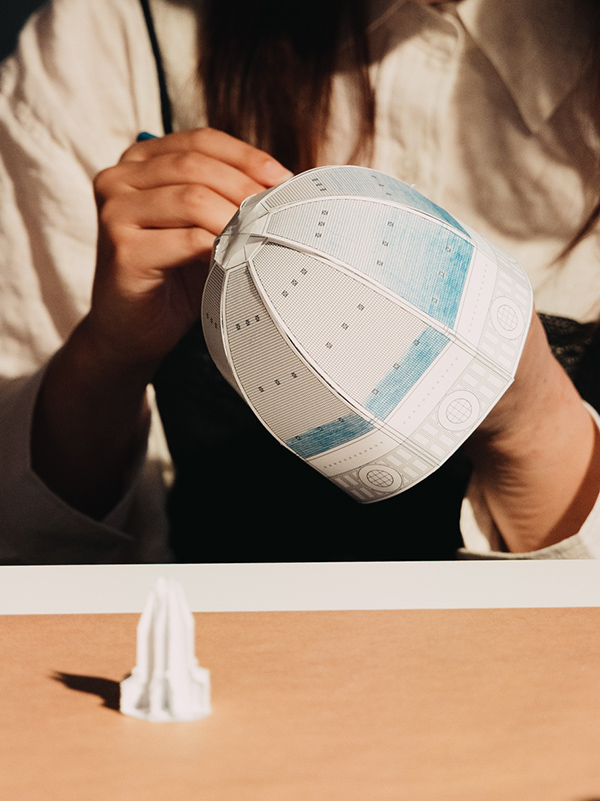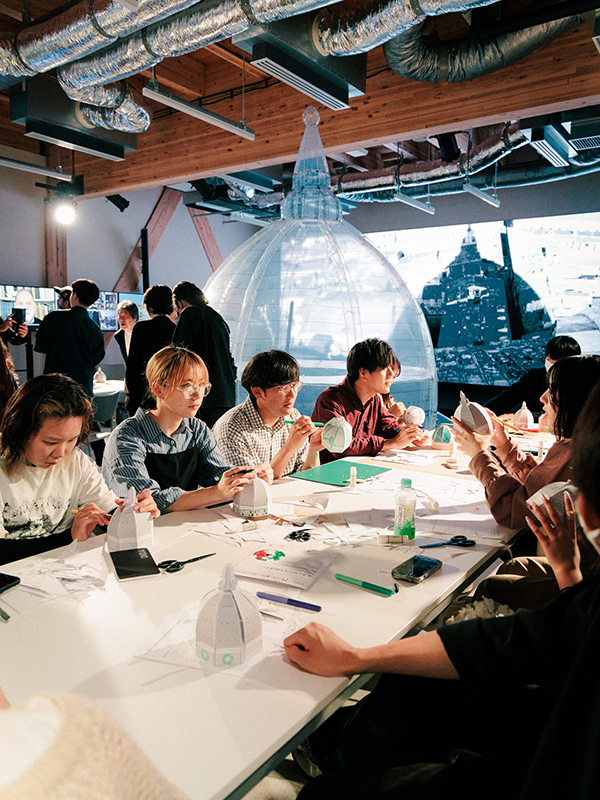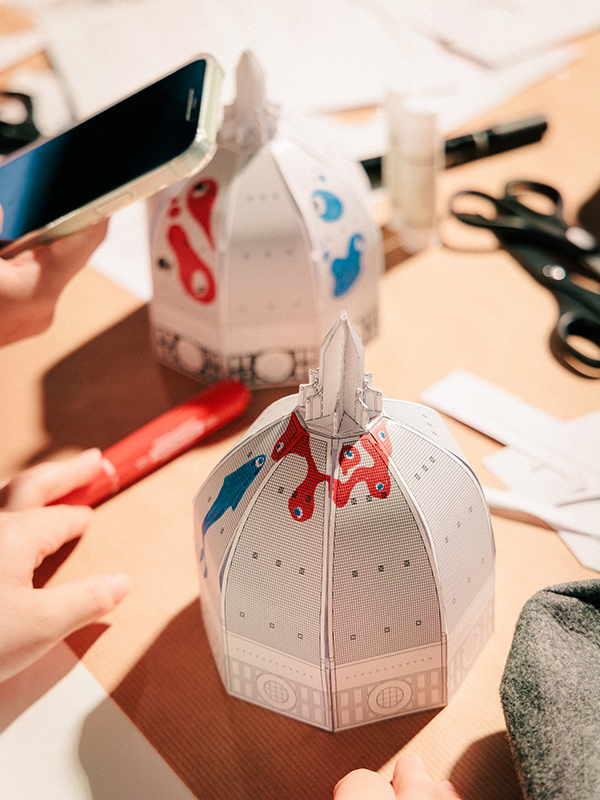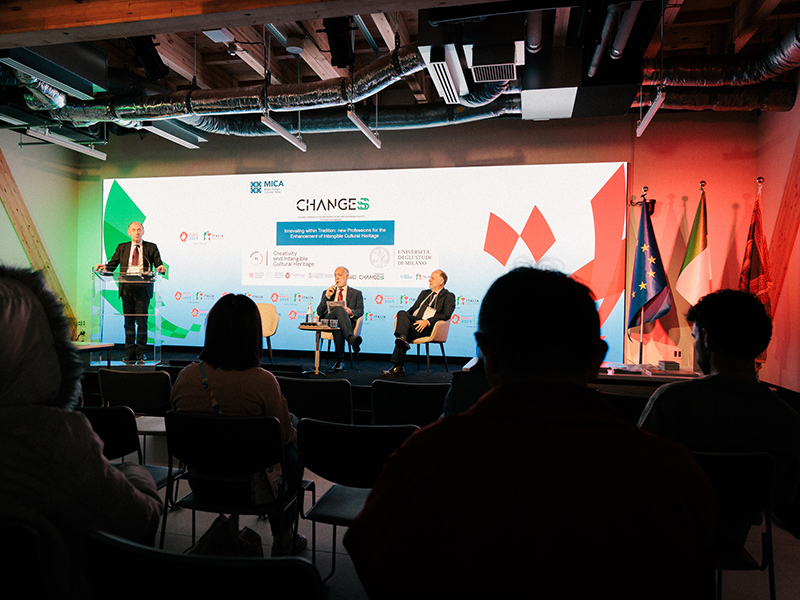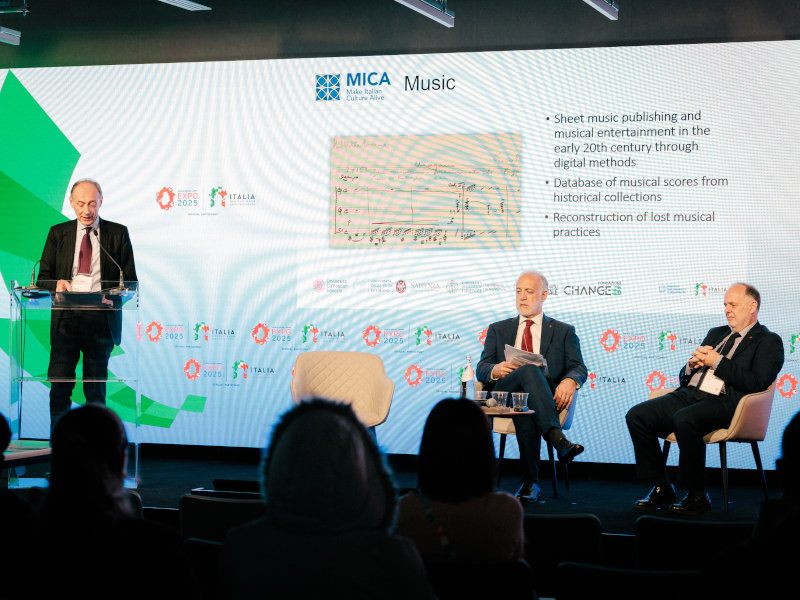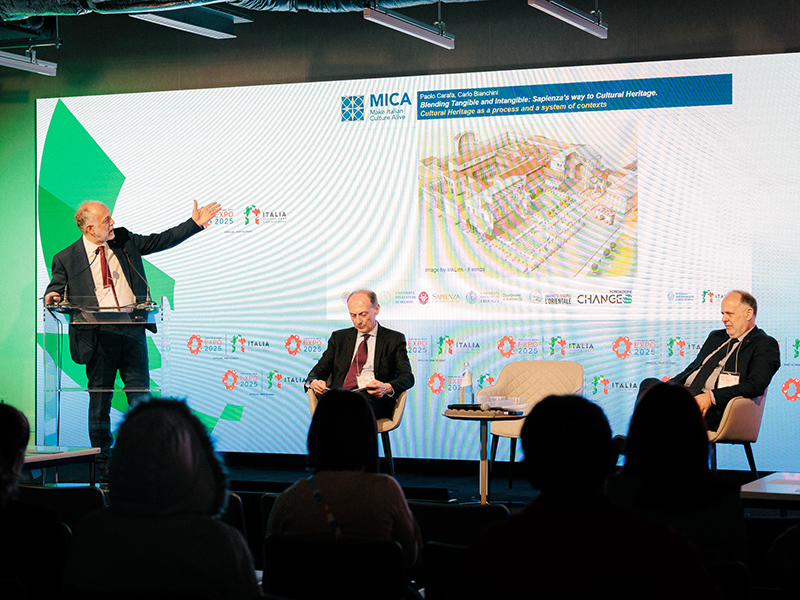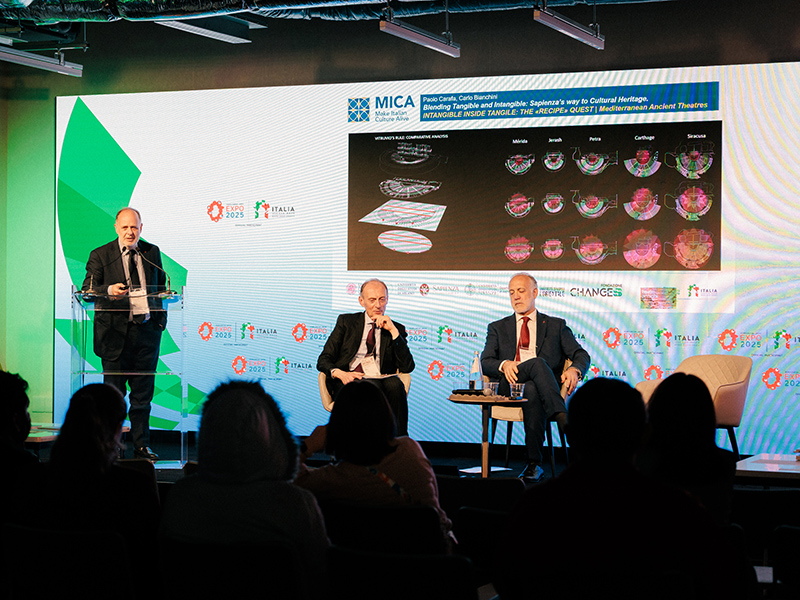Activities
The launch of MICA at Expo 2025 Osaka
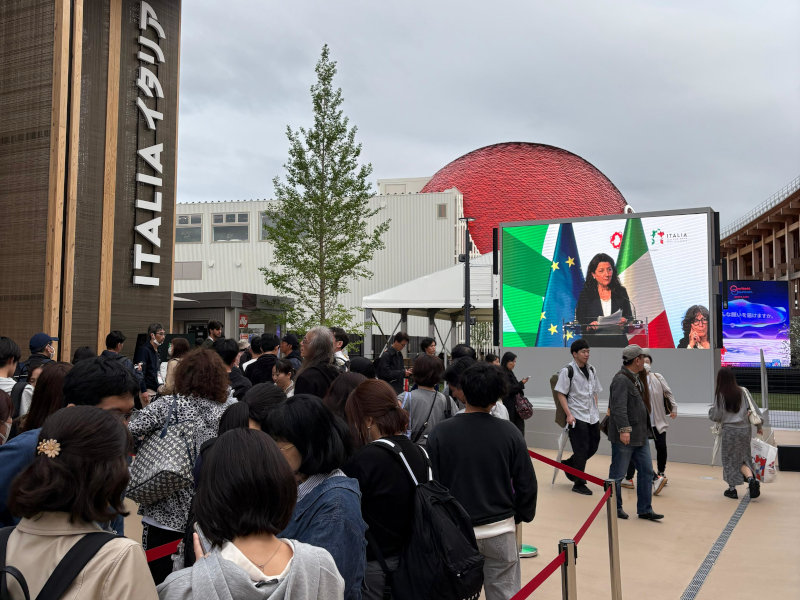
Talk: MICA - Make Italian Culture Alive: opening session and presentation
Speakers: Chiara Saccon, Monica Calcagno, Marcello Pelillo, Margherita De Luca, Marcella Mariotti, Gala Maria Follaco, Andrea Innocenzo Volpe
Make Italian Culture Alive (MICA) is a project funded by the Italian Ministry of University and Research that brings together five prestigious Italian universities for Expo 2025 Osaka . Scheduled from May 6 to 10, 2025, at the Multimedia Conference Room of the Italian Pavilion, MICA will offer a significant opportunity to explore and enhance Italy’s artistic and cultural heritage through innovative and interactive approaches. Coordinated by Ca' Foscari University of Venice, the project is carried out in collaboration with the University of Florence, the University of Naples L’Orientale, the University of Milan, La Sapienza University of Rome, and with the participation of the CHANGES Foundation.
The opening session allows the partnership to present in detail the project and the initiatives that are part of it: CHANGES, iNEST, RePAIR, NolBrick, OrienTales, Let’s play the Renaissance together!
Watch the full video of the talk on YouTube.
Ca’ Foscari University of Venice
Workshop "Enhancing cultural heritage for truly sustainable tourism: challenges and solutions"
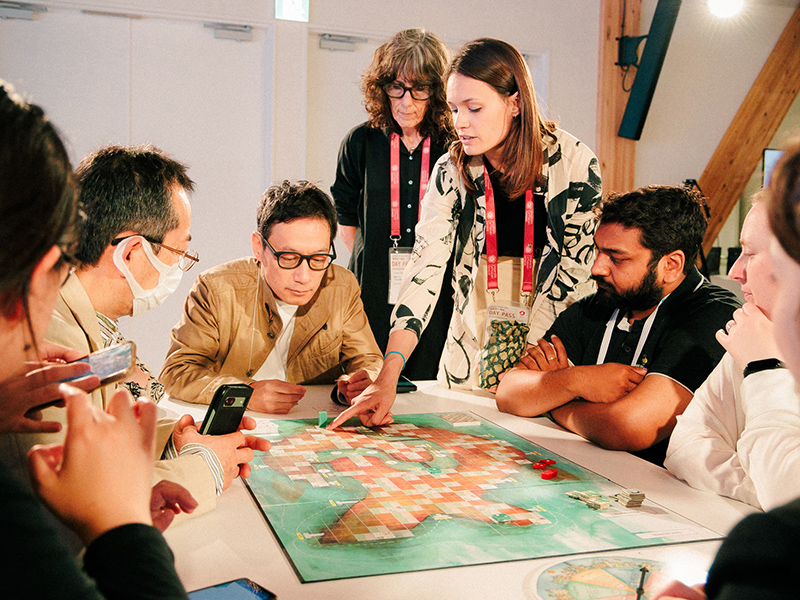
Speakers: Monica Calcagno, Margherita De Luca
Tourism, especially in its "over" form, is currently subject to global criticism for its unsustainable impact on the economy, environment, and society. Several places, united by the consequences of overtourism, often come under the spotlight for tensions with local populations, while solutions are sought to mitigate the phenomenon.
Cultural tourism, on the other hand, is viewed more positively, as it is linked to the cultural motivation of visitors. However, are we sure it is truly "good"? Does cultural motivation, tied to fulfilling experiences in historical sites and monuments, really distinguish the flows? And even if it does, can we ignore the effects of mass cultural tourism, which threatens the preservation of sites and the socio-economic balance of cities?
Tourism, including cultural tourism, is embedded in an extractive model that reduces the value of resources. Studies focus on managing flows, neglecting the productive process of experiences from cultural resources. With increasing tourist pressure, cultural sites become reproductions of authenticity. To overcome the dichotomy between tourism and citizenship, it is necessary to involve communities, promoting sustainable tourism that enhances cultural participation and new authentic narratives.
"Level-Free Italian NoLBrick Workshop"
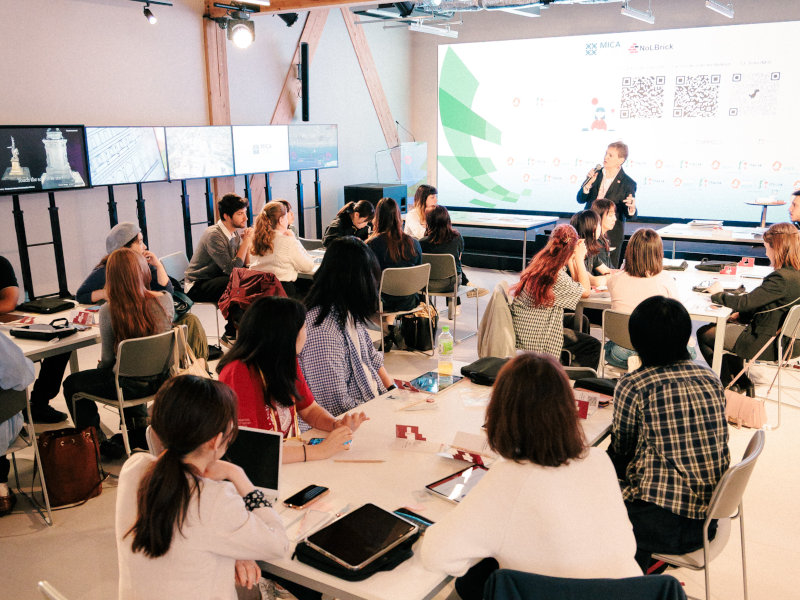
Speakers: Marcella Mariotti, Margherita Melotti, Matilde Giugni, Nicholas Ruggeri
As part of the “Make Italian Culture Alive (MICA)” initiative, this project provides an inclusive and accessible opportunity for everyone to explore Italian language learning. The NoLBrick method, created by Prof. Marcella Mariotti from Ca’ Foscari University of Venice, aims to make foreign languages accessible to learners at all levels. Even beginners can immerse themselves in Italian through real-life contexts, utilizing interpersonal dialogue and technology to develop and foster meaningful connections. The workshops that will take place within the Italy Pavilion at Expo 2025, will engage participants with the surrounding exhibitions and employ critical thinking to enhance their Italian language skills. It will also be a chance to showcase CAFOSCARI Jisho, the first cross-platform and free Japanese–Italian dictionary app developed by Ca’ Foscari University of Venice.
Demonstration "Reconstructing the Past: Artificial Intelligence and Robotics meet Cultural Heritage"
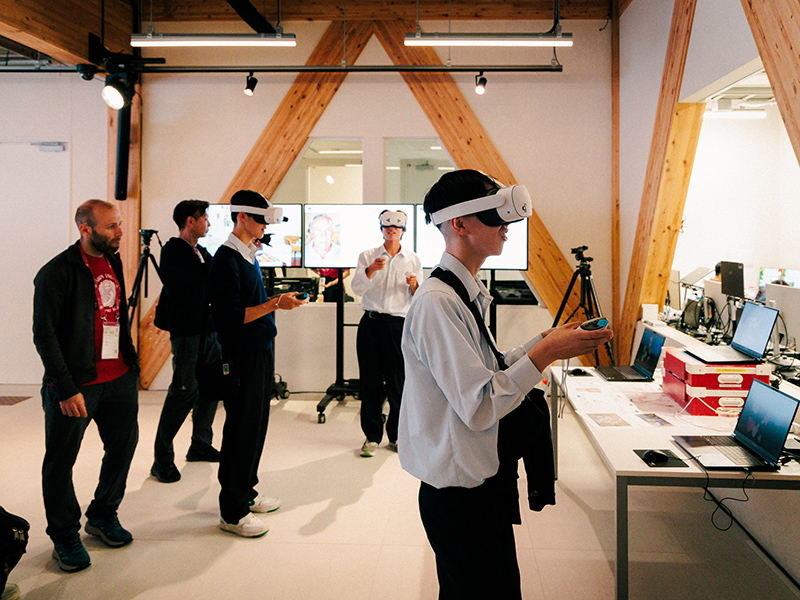
Speakers: Marcello Pelillo, Sebastiano Vascon, Luca Palmieri
The RePAIR project demonstration allows users, through virtual reality, to immerse themselves as archaeologists in reconstructing destroyed frescoes from their fragments. The frescoes originate from the archaeological park of Pompeii, a UNESCO World Heritage site, and were destroyed during the eruption of Vesuvius in 79 AD. Users can try to assemble some of these archaeological puzzles on their own or seek help from the system developed within the project, which, thanks to artificial intelligence, supports the user-archaeologist in “solving” the various frescoes.
Additionally, two screens will be present to demonstrate other phases of the project (high-resolution scanning of the fragments and physical reassembly via robots), which are essential for the reconstruction of the frescoes.
University of Naples L'Orientale
Workshops "A manuscript to rewrite" and "The curiosities of Jocohama"
Workshop "A manuscript to rewrite"
Speaker: Antonio Manieri
A unique opportunity to rediscover the art of Japanese writing through a workshop based on a precious manuscript: a small historical manual for learning different calligraphic styles, preserved in the Asian Section of the Library of the University of Naples L’Orientale. This document, which has an intriguing publishing history, has recently been digitized as part of the OrienTales project and is being presented for the first time at Expo2025.
Workshop "The curiosities of Jocohama"
Speaker: Gala Maria Follaco
At the end of the nineteenth century, the topographical work Minato no hana Yokohama kidan by Kikuen rōjin was translated into Italian by Antelmo Severini. Surprisingly, Severini conceived this text as a didactic tool and proposed it to his students as a manual for learning the Japanese language. During the workshop, participants will imagine teaching methods based on Kikuen’s work, using digitized images of the original bilingual edition preserved in the Asian Section of the Library of the University of Naples L’Orientale.
University of Florence
Workshop "Let's play Renaissance together!"
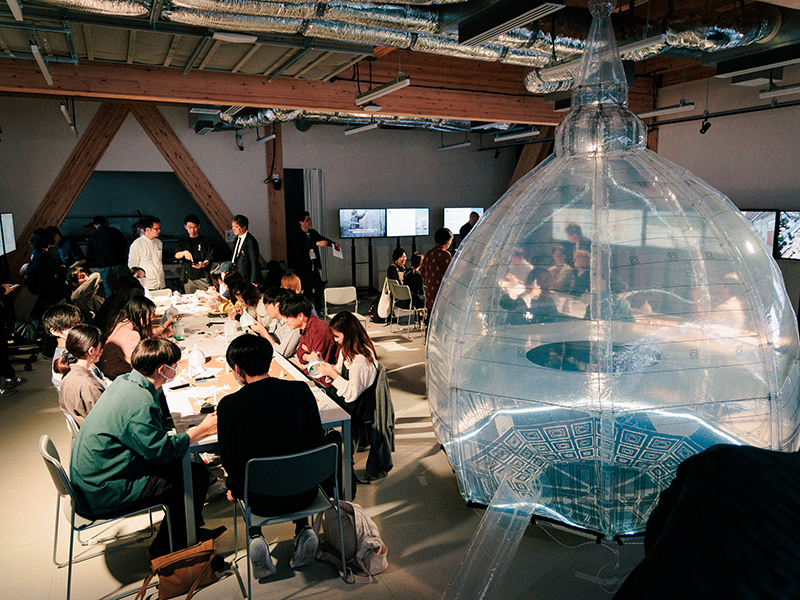
“Il Duomo di Firenze come esempio vivente di restauro del patrimonio e di progettazione architettonica innovativa: un workshop performativo dedicato a Filippo Brunelleschi, architetto della Cupola”
Speakers: Susanna Caccia Gherardini, Andrea Innocenzo Volpe, Giorgio Verdiani, Leonardo Zaffi
Tutors: Pierpaolo Lagani, Francesco Pisani, Luciana Bizzini, Matilde Martellini, Francesca Martellini, Yoichi Sakasegawa, Ken'ichi Matsutomi
Special thanks to Prof. Marcello Scalzo from the Video Laboratory of Architecture at the Department of Architecture, University of Florence
The Florence Cathedral as a living example of heritage restoration and innovative architectural design: a performative workshop dedicated to Filippo Brunelleschi. In Italy, architectural restoration often means building new designs on the heritage left by older buildings. We decided to introduce this concept of creative restoration and conservation, rooted in the past but open to the future, by asking students to relive what Filippo Brunelleschi did with his architectural design proposal for the dome of the Florence Cathedral. Participants will be asked to build a paper model of the dome, provided by Mandragora, a Florentine publisher specialising in art books. The air-balloon Brunelleschi dome, which will be on display at the workshop, not only represents Florence's Cathedral but also pays homage to the radical design movements that flourished in Japan and Europe, particularly in Florence, in the late 1960s.
Architectural restoration and innovative design are never contradictory, but rather are inextricably linked. The Renaissance was, after all, nothing more than an avant-garde art movement. It is only by looking at the great traditions of the past as something to be preserved and passed on through restoration that we can take a step into the future.
University of Milan - Sapienza University of Rome
Talk "Innovating within Tradition: New Professions for the Enhancement of Intangible Cultural Heritage"
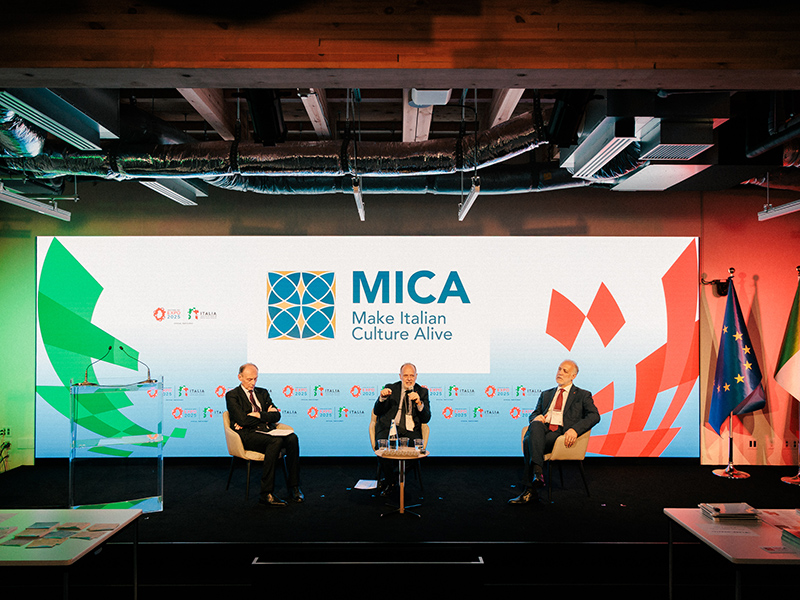
Speakers: Alberto Bentoglio (University of Milan), Paolo Carafa (Sapienza University of Rome)
Cultural transformations are redefining the ways in which we enhance intangible cultural heritage. This talk explores how new professional roles, skills, and innovative strategies can renew Italian traditions, highlighting their immense value and unlocking unexplored potential. By mapping emblematic cases and emerging trends, the key profiles and skills required for the future of cultural enhancement will be illustrated, offering useful insights for institutions and cultural operators to guide educational paths and training projects in the field of intangible cultural heritage.

